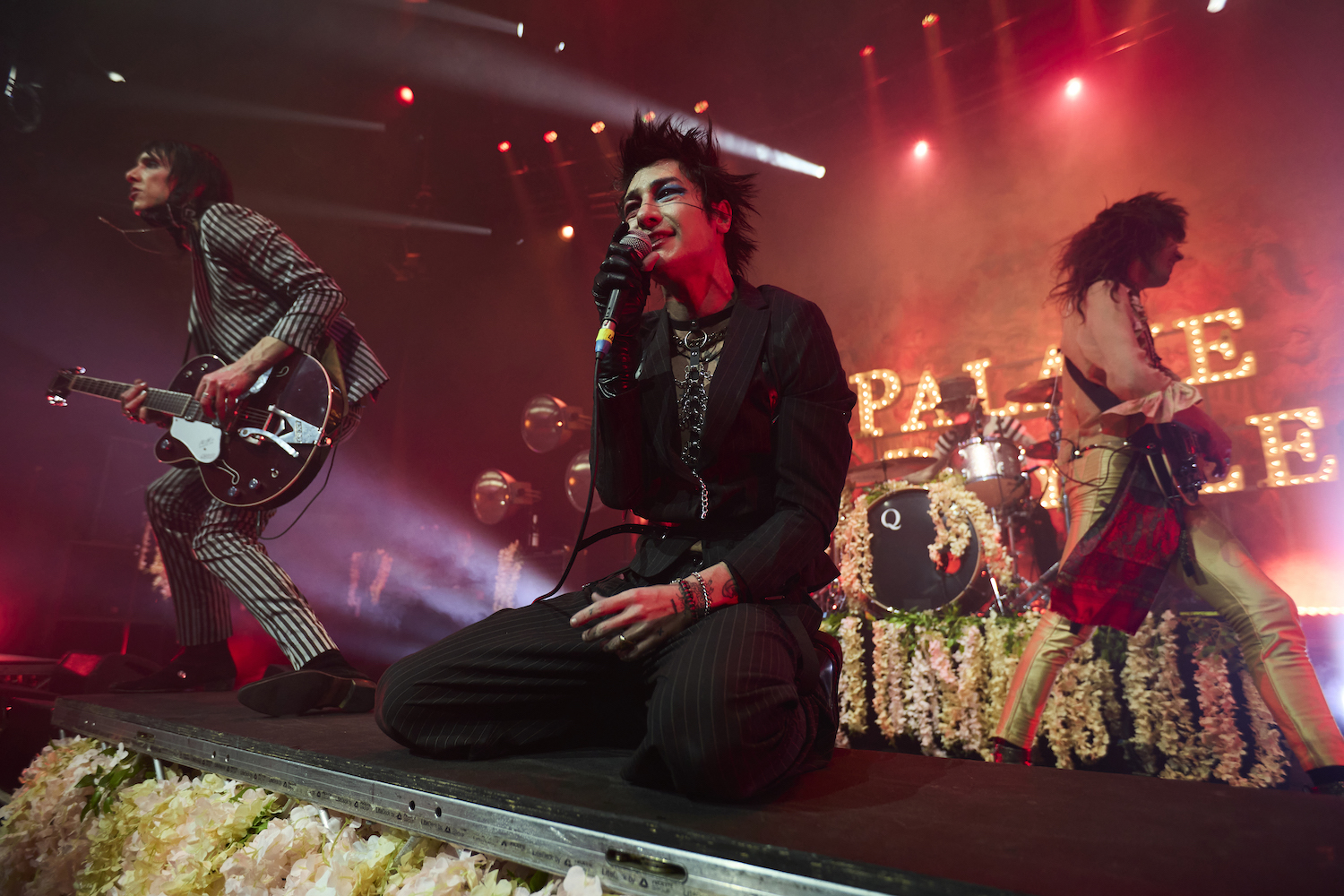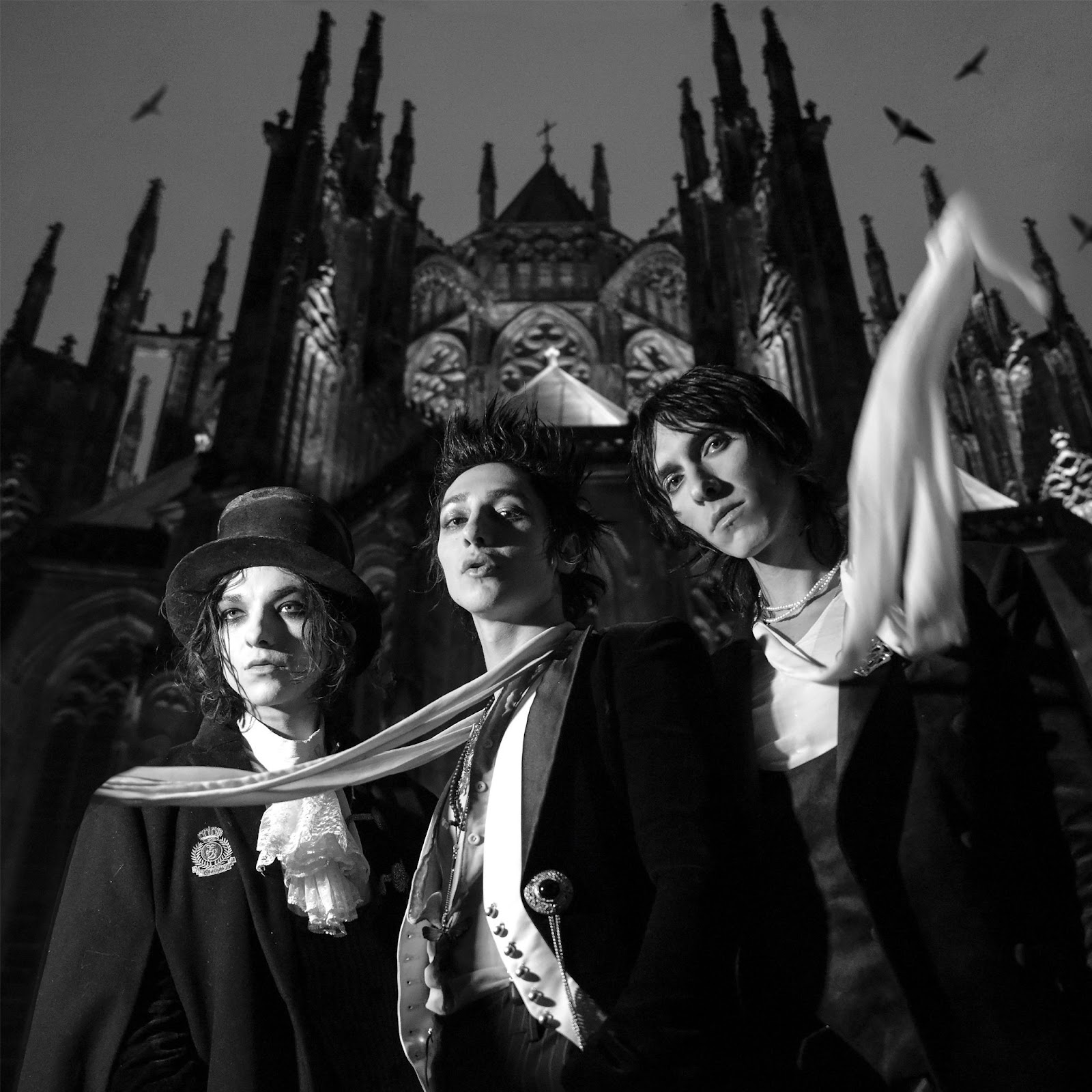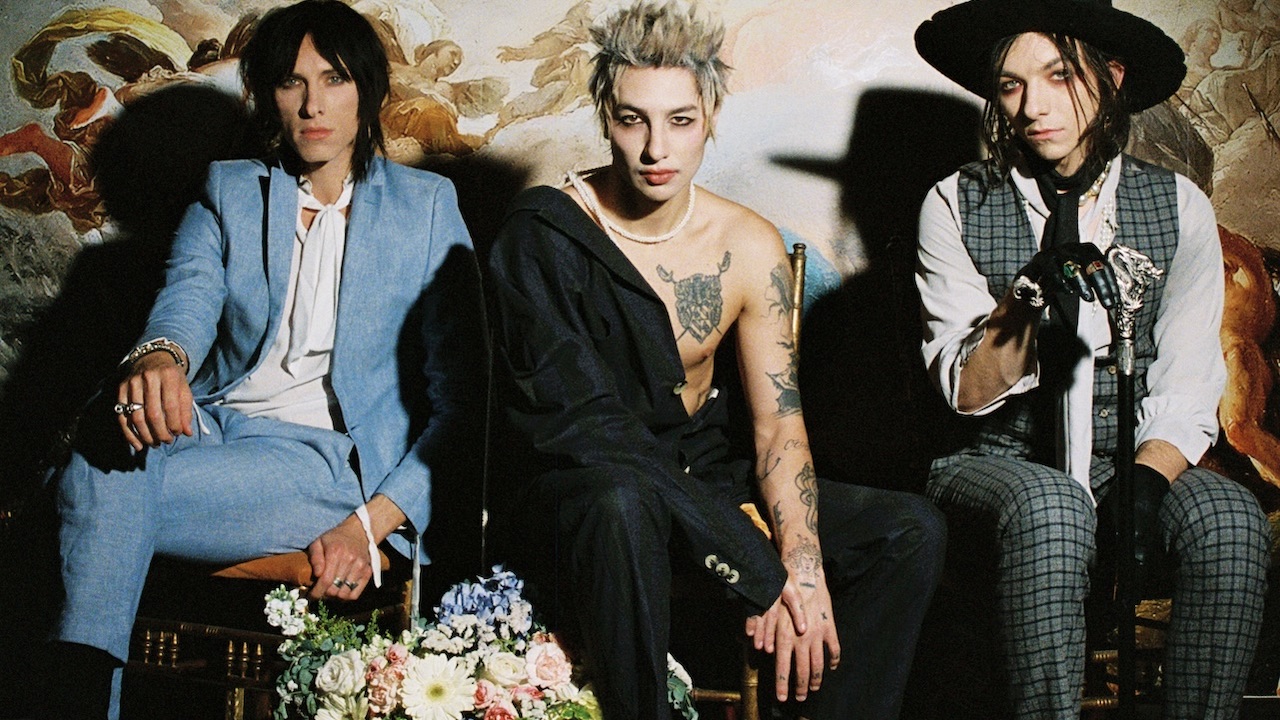Less than a decade ago, the three brothers who make up the core of Palaye Royale were living in their car while trying to make a name for themselves playing whatever shows they could blag on LA’s infamous Sunset Strip.
Realising they were going nowhere, they decided to try to go everywhere instead. They hit the road in 2015 and just kept going, booking their own headlining tours and supporting anyone who would take them on.
Their road warrior approach paid dividends. When they played their first UK headlining show just five years ago, it was to 300 dedicated fans and curious onlookers at the Camden Assembly in London. Earlier this year they played to more than 3,000 at the Camden Roundhouse and when they return to these shores in early 2023, in support of the newly released Fever Dream, it will be to 5,000 converts at the Brixton Academy.
“We knew from day one when we did the Camden Assembly that we're going to Brixton, we're going to go to Wembley, we're going to do Ally Pally,” says guitarist Sebastian Danzig. “And we've already accomplished half the things we wanted to do in London. That's down to the fans but I think it's also down to us coming back as much as we possibly can. It's an incredible thing for us to see those stepping stones.”

Palaye Royale have clearly never been a band short on confidence or ambition. They also had the work ethic to back up the belief, but that constant grind of life on the road took its toll. After setting out for that first tour they also churned out an album every two years (Boom Boom Room (Side A) in 2016, Boom Boom Room (Side B) in 2018 and The Bastards, which emerged in 2020) while continuing that relentless tour schedule.
Many bands claim to be like a family but when you actually are, there’s a whole other dynamic at play. Sebastian and his siblings, vocalist Remington Leith and drummer Emerson Barrett (their family name is actually Kropp in case you’re wondering, and the band originally started under the unfortunate name Kropp Circle) were always close, but their relationships suffered in such unremitting proximity.
“We went from our mom's car to a van to an RV to a bandwagon to a bus. It was a progression that kept on growing. It was great but it was very close quarters and we were doing 200 shows a year. It definitely got to times where we were at each others’ throats,” Sebastian says.
In the end it took the enforced curtailment of all touring activity that lockdown brought – as well as an intervention from their producer – to help them reset those relationships. Lockdown gave them something they’d never really had before; the chance to really take their time in making a new album.
Their first-choice partner for this project was Chris Greatti. As a singer-songwriter in his own right who has collaborated extensively with Poppy and YUNGBLUD, as well as working with the likes of Blink-182 and Pussy Riot, the producer seemed perfect for helping Palaye Royale to realise the rather more expansive vision that would become their new album Fever Dream. The only problem was, he wasn’t overly happy about being caught in the middle of their toxic relationships.
“We were in a really terrible place with one another. We were getting in fights all the time, it became a thing where he said, 'I'm not going to work with you guys if you talk to each other in such a disrespectful manner’,” the guitarist recalls. “If we wanted to make an album with him, we had to be on our best behaviour. And it ended up working because now we're really close with one another again.”
As well as doing wonders for their familial and intra-band relationships, the sessions also resulted in Palaye Royale’s finest album to date. The environment they were writing and recording in certainly helped when it came to their combined creativity. In classic rock band style they holed up together in an old house in Hollywood and, with lockdown restrictions in place, had little to do but concentrate on the album. According to Sebastian, the three brothers had all started their respective musical journeys on the piano. The house had not only baby and grand pianos but more exotic electro-mechanical cousins like a Mellotron to play with.

This added an extra dimension and sense of freedom to the songwriting process, as well as a more prominent position for the old ivories themselves.
“The piano has been a huge part of our musical upbringing and it’s a big part of the band, but it's one that hasn't really been captured in the recording process,” Sebastian says, going on to explain that they’ve had issues in the past with recording techniques. “We worked with different microphone techniques with Chris capturing it so you can hear the hammers hitting the strings, which is what gives it that warmth and texture, as opposed to making it sound like an electronic piano.”
None of which is to say that Fever Dream sounds like Rachmaninoff, Ben Folds Five or, for that matter, Chas & Dave. The stadia-aspiring, glam-tinged anthems of their previous albums are all present and correct, but there are more intricacies and different approaches at play.
There are moments of pure pop-rock bliss in opener Eternal Life and No Love In LA. There’s the fragility of Line It Up, featuring a guest appearance from LP (Laura Pergolizzi) and there’s the absolute epicness of title-track Fever Dream, which comes on like Palaye Royale’s own version of Welcome To The Black Parade.
“We're a punk band onstage but on records we're more of an alt rock band now. We definitely can do the heavier tones of The Bastards or we can get into the more delicate areas with the Fever Dream world,” Sebastian considers. “It's an interesting thing because I feel like art shouldn't have barriers or walls and you should be able to explore wherever you want to go.
“We're really fortunate to have Remington as a frontman because whether he's singing a folk song or a pop song or a metal song, you know it's Remington. He has such a distinctive voice. And that really allows us to grow and go wherever we want on an audio level.”
The singer also provided the vocals for the movie American Satan and the follow-up TV series Paradise City; his singing voice was used for the main character Johnny Faust who was played by Andy Biersack. So was it weird for Sebastian to hear his brother’s vocals coming out of Biersack’s mouth?
“So weird,” he laughs. “You hear Remington's voice and it almost doesn't make sense because Andy has had such a great career with Black Veil Brides and Andy Black. You expect to hear that voice and you hear Remington's, which is more growly than Andy's. I think it fits into the realm of the rock band in Paradise City but it's definitely funny to see that.”
Lyrically and despite the global situation when the album was being written, Fever Dream is a much more optimistic piece of work than its predecessor The Bastards. On songs like Punching Bag they do juxtapose a dark lyrical bent with an irresistibly upbeat groove but elsewhere the album brims with positivity. Where The Bastards was a concept album filled with state-of-the-world allegory, Fever Dream is all about self-empowerment and moving forward. It also offers a large slice of larger-than-life rock star escapism.
“I think that was our baseline of being a band in the sense of where our attitude was, where we were at before the record even started,” Sebastian nods. “We just wanted to make something that showed we had hope in ourselves and what we're doing and our music and the world. I hope that shows in the music because there is a more optimistic attitude and approach that we’ve never had in a Palaye Royale record before.”
He continues: “The only reason we have any modicum of success is because of our fans; building them one by one and they got us through the rough times. We wanted to create something for them that our favourite bands gave us, which is that sense of escape. And because of what's happening in the world, you have this world that we’ve created, which is what we've always wanted to do.”
Indeed, Palaye Royale have always aimed to be more than ‘just’ a band. Initially embracing the label of fashion-art-rock, the aesthetics have always been a major element of their appeal and Sebastian says he considers them to be more of an art project than a band. Whether setting up pop-up shops or producing graphic novels to draw you further into this self-created world (the guitarist promises a new volume will follow Fever Dream the album, with vague ambitions for an anime or live-action movie), it’s all part of the grand theatrical whole.
“From the graphic novels, the merch and the make-up to the ideologies of the band, the music and the visuals, it’s all part of our world,” Sebastian says. “We always wanted to grow beyond. We've always known where we can take this band but now it's growing to a level where we’re seeing so many people. It feels so connected, and that’s a very beautiful thing.”
Fever Dream is out now.
